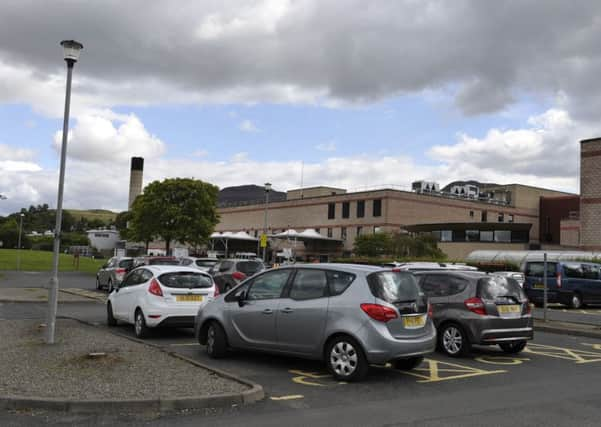Public heed call to only use BGH A&E in an emergency


Susan Manion, chief officer for health and social care integration thanked the public, saying: “The public response to our reminder that you should only go to A&E if you are an emergency was extremely supportive and we were able to maintain our focus on the safe discharge of patients to give us as much space as possible.
“Thank you for your cooperation.”
However, as wintry weather continues, that pressure on beds is not expected to ease any time soon.
Advertisement
Hide AdAdvertisement
Hide AdManion added: “We anticipate the continuation of high demand for beds in the BGH and Community Hospitals this week, with icy conditions making slips, trips and falls more likely.”
Also, ward 12 at the BGH is currently closed to admissions as a precaution due to a number of patients experiencing gastrointestinal (GI) symptoms.
Manion stated: “Visitors to Ward 12 are strongly discouraged at this time, and relatives and carers are asked to carefully consider their visits to the hospital. The general advice is to stay away from any hospital ward if you or anyone in your family has experienced symptoms of diarrhoea and/or vomiting in the past 48 hours.
“Please remember that your community pharmacists are available to provide expert advice and treatment for a range of common illnesses and ailments, and to give advice about your medicines.
Advertisement
Hide AdAdvertisement
Hide Ad“If you or someone you care for is unwell and your GP surgery is closed, contact the NHS 24 helpline on 111. If the condition is immediately life threatening, dial 999 for an emergency ambulance.”
For further updates please visit www.nhsborders.scot.nhs.uk
z Norovirus is one of the commonest causes of diarrhoea and vomiting illness and spreads through communities just like the flu does. Outbreaks can start abruptly and spread quickly, but the public can take action to help minimise the impact.
You should try to avoid going to hospital or any other healthcare facility if you or other members of your family have had diarrhoea or vomiting within the past 48 hours.
Hand washing with soap and water is essential after contact with people with diarrhoea symptoms in hospital and at home.
Advertisement
Hide AdAdvertisement
Hide AdCommon symptoms of Norovirus are diarrhoea and/or vomiting generally lasting for 12-72 hours.
Other symptoms can include headache, fever and muscle aches.
Treatment in most cases requires drinking more fluids than usual and resting to give your body a chance to fight the infection. Because it is a virus, antibiotics will not help.
If you are worried, you should call NHS 24 on 111 or your local health clinic or GP.